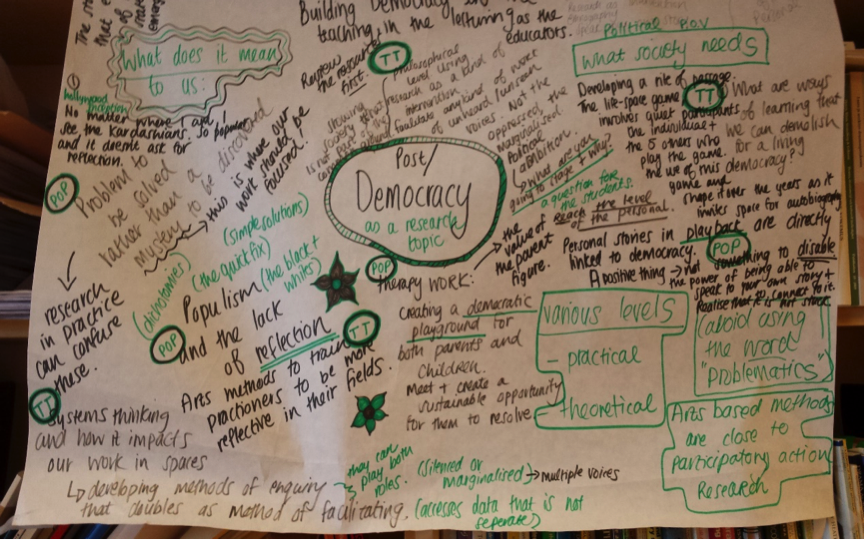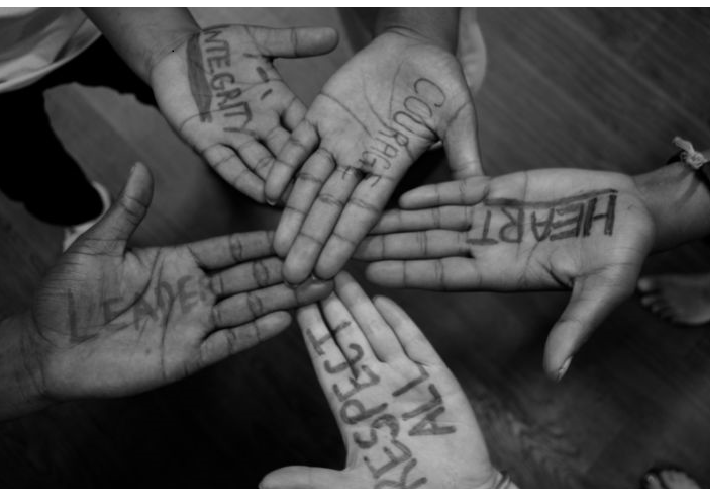Building democracy through theatre in the post-democracy

Democracy Through Theatre' is a research exchange project between Drama for Life, University of Witwatersrand School of Arts and Department of Arts and Media Studies at the Norwegian University of Science and Technology. The project aims to strengthen applied theatre postgraduate education and research through course development, and student and teacher exchange by addressing contemporary and crucial issues of democracy in Norway and South Africa.
The project seeks transferable knowledge and skills about, and through, the making and communication of theatre as a complex multimodal medium that can benefit our societies and better our human conditions.
It wants to develop theatre both as focus of study and as method of inquiry by:
- Gaining understanding of theatre as a communication platform.
- Expanding embodied knowledge of specific human issues through theatre as communication medium
- Promoting education, transformation and healing when immersed in theatre as experiential transformational context.
The Democracy Through Theatre project will see exchange programmes between Drama For Life and the Department of Arts-and Media Studies at NTNU, starting with a Norwegian student and teacher delegation visit to South Africa every year in the first semester from 2018 to 2021, and a reciprocal DFL delegation to Trondheim in the second semester during the same period.
The project will culminate in a joint conference at DFL in 2021.
Research outcomes
The joint educational and research activities include visual and written production (publications) from students and from practitioner/academic collaborations. As main research output the project envisions an open access digital research anthology containing both creative research and traditional written research that critically interrogate issues of democracy North and South.
CLICK HERE TO FILL OUT THE ABSTRACT SUBMISSION FORM

The post-democratic context
The project is a response to the conditions of the post-democracy that we experience in our societies. Conditions that:
- Enrol the citizenry as passive, quiescent, even apathetic receptacles, responding only to what is given to them.
- Force alternative thinking and behaviour to take form as either radical and violent exclusion and rejection or an uncritical inclusion of different opinions on anything imaginable as long as it does not question the of the neo-liberal, political–economic state of affairs.
- Strategically de-politicize the arts; stimulating theatre industry as compensatory, non-binding entertainment; muting the educative and political potential of theatre, impeding the staging and negotiations of the unseen bodies and unheard voices in non-violent spaces.
In contrast, the Democracy Through Theatre project would rather employ and investigate theatre as a way to promote:
- A belief of the intrinsic value of each person in each context as active citizen who is already contributing to their society.
- An appreciation of the multiplicity of voice, body and perspective.
- The promotion of participant-audience centred education and theatre making.
- The critical interrogation of habitual and dominant narratives.
- A search for the meaning and practical implementation of deep democracy
- An acknowledgement of the systemic nature of the human condition in all its aspects.
- An understanding of theatre making as political act
The partners involved are students and teachers/supervisors/researchers from the arts-based research programmes at the Department of Arts-and Media Studies at NTNU, Norway and Drama For Life at the University of the Witwatersrand, South Africa.
Also involved are selected artists and practitioners in the field associated with the academic partners. They provide sites for investigation and knowledge generation (research knowledge, participant’s knowledge). The partners expect to achieve strengthened applied theatre programs and strengthened resource centres of applied theatre practice-led research and research education, securing further international collaboration in mobility, education and research.

